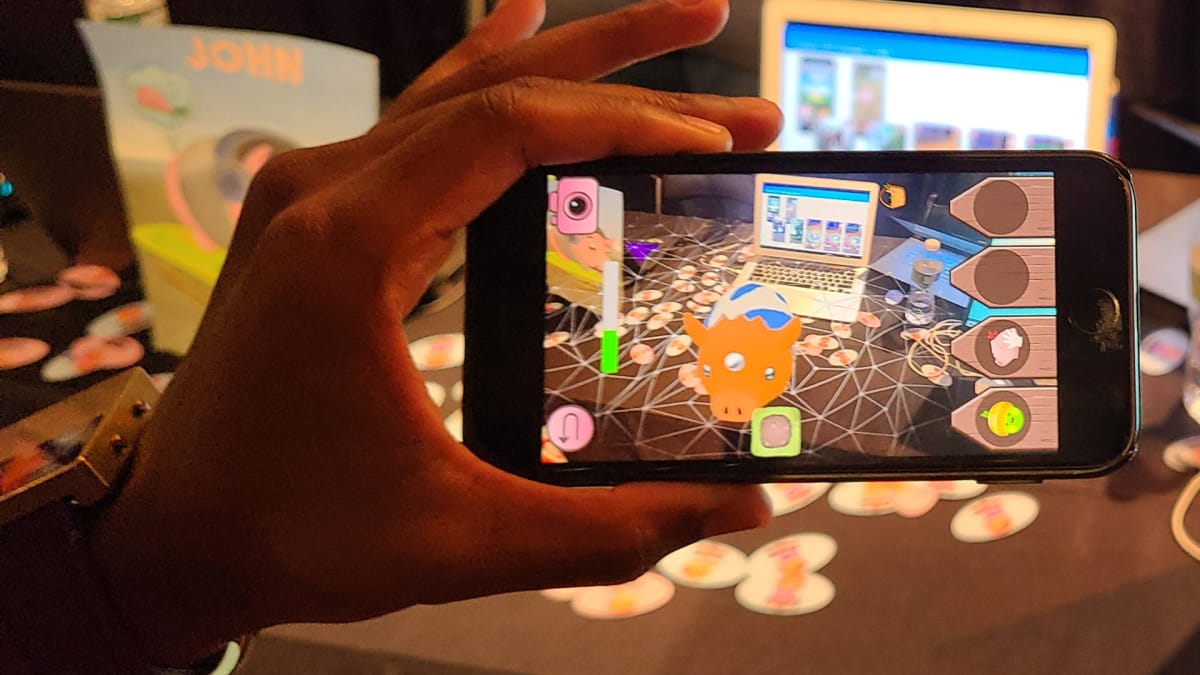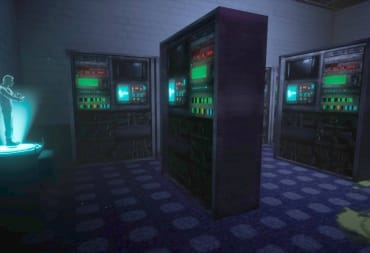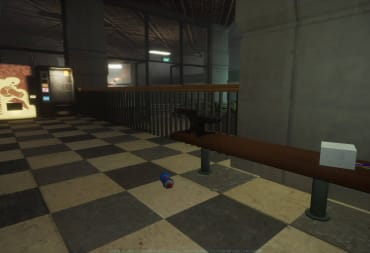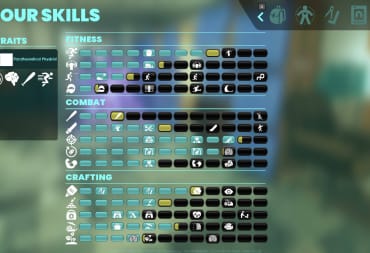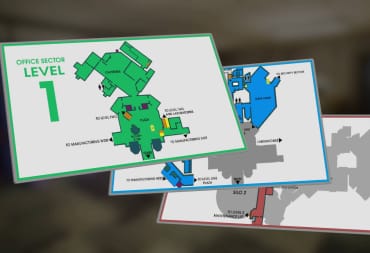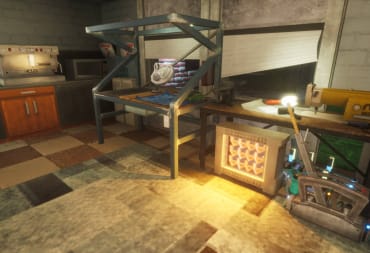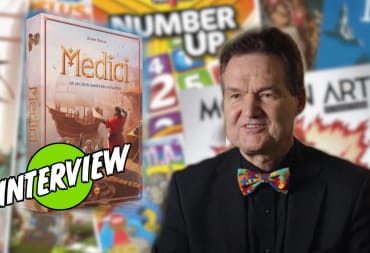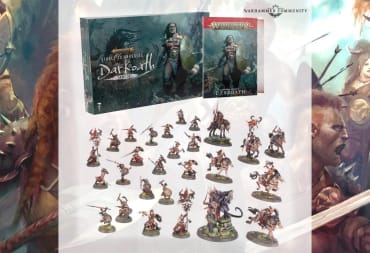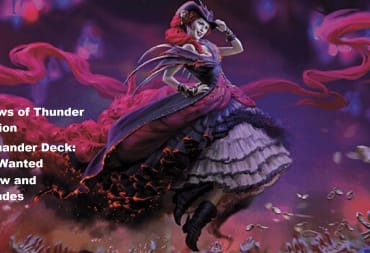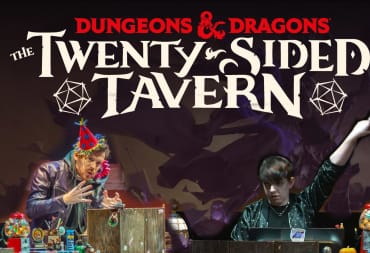Virtual pets got their start in the '90s, and Tamagotchi further popularized these games. We may soon enter a new era in the genre with Tontachi, the next project from Urban Electronic Games.
All the cool kids had a Tamagotchi (or one of the many knockoffs), and the fad continued proved pretty popular. These virtual pet toys continue to have niche appeal — and you can still buy them today — but the virtual pet genre of gaming has largely shifted to web services and mobile apps.
The popularity of virtual pets hasn't gone unnoticed by game developers. A rather interesting new virtual pet game called Tontachi is on the way — and it leverages some interesting technology behind the scenes.
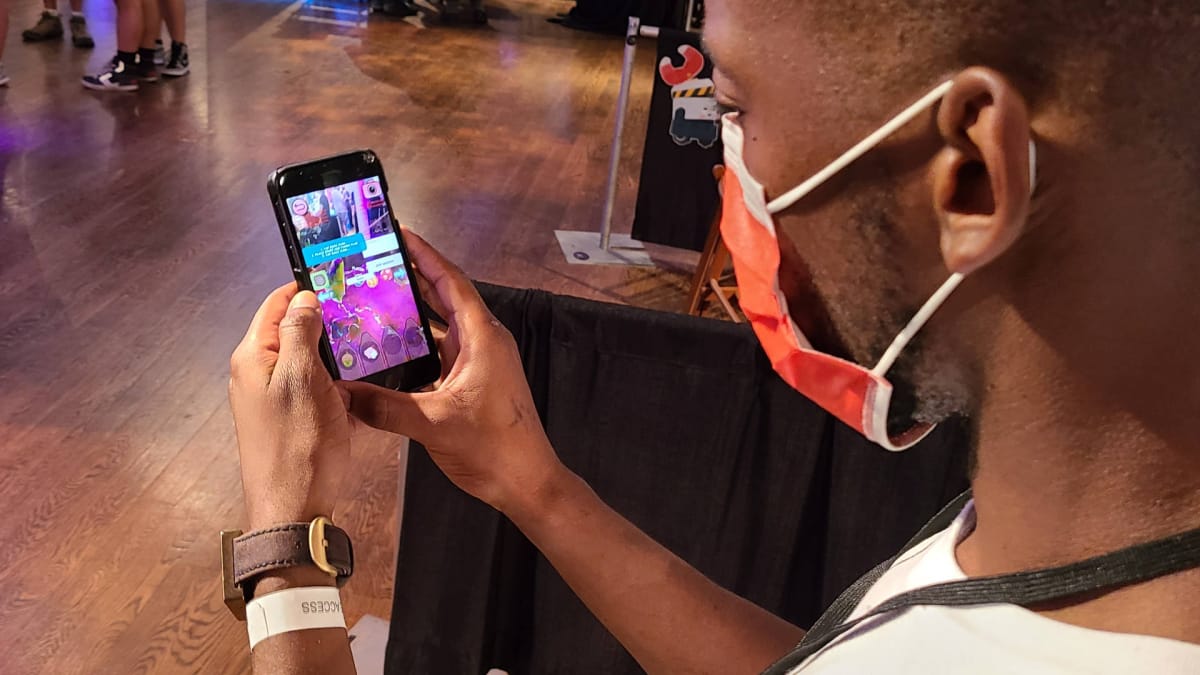
What is Tontachi?
Tontachi is a virtual pet game that was created by Urban Electronic Games. Its name is a portmanteau of the Japanese words ton (pig) and tomodachi (friend). Players can collect these adorable little pigs — referred to in-game as "Tons" — and play with them using augmented reality, and you can also get together with other players to race them in the AR space.
Currently in pre-alpha testing, Tontachi is a spin-off of a Japanese game with a similar theme called Crypt-Oink Racing Friends. Crypt-Oink was created by Japanese game developer Good Luck 3, and it has similar gameplay in many respects. Your Tons come in all shapes, sizes, and colors, but that's just the beginning; you can also dress them up with cute cosmetic items or boost their stats in various ways to make them a racing machine.
The idea to put virtual pets on the blockchain isn't unique. Game developers tend to be at the forefront of technology, and many of them recognized the potential uses for crypto. One such example is CryptoKitties, another virtual pet game on the Ethereum blockchain where you get started by clicking a button that's awkwardly labeled "Teach me how to breed." Tontachi, in comparison, is a little more about actual gameplay.
Simply put, Tontachi takes a Japanese pig racing game, brings it to mobile devices, and incorporates augmented-reality technology. Understanding how a niche Japanese game made it to America, though, has to begin with the story of Urban Electronic Games' Founder John Wolff.
Occlusion testing 🙉🙈🙉#screenshotsaturday #niantic #lightship pic.twitter.com/8owK0v9dGi
— tontachi (@tontachiAR) July 10, 2021
Tontachi doesn't just slap a floating virtual character on top of your camera. It uses Niantic Lightship to track surfaces in real time, ultimately making for a much more realistic experience.
Hungry Like the Wolff
John Wolff's game development career didn't exactly go in a straight line. It wasn't until he moved to Suita, Japan, and spent two years intensively studying Japanese language and culture at Kansai University that things really took off.
"I've been making video games for a very long time — since I was about 16 — and I had never gotten a chance to work in the video game industry. Although, I always wanted to." – John Wolff
With his university education behind him, Wolff managed to snag a job at Japanese game developer Good Luck 3. He cut his teeth in QA and gradually blossomed into a jack of all trades for the company, assisting it with localization, translation, and community management. Naturally, Wolff also became fluent in the local language thanks to his academic efforts at Kansai University and his experience working at a Japanese company.
"When I was working in my professional career, I decided that I would actually want to go and move to Japan and learn about game development from a Japanese standpoint," Wolff told me in a conversation at Play NYC 2021. "Because when we think about video games and we think about the original ones, we think about Mario, Sonic, all these original 'Meccas' — and I wanted to go to Mecca to learn about video game development."
Wolff's time in Japan eventually came to an end after a few short years. He gained valuable experience in game dev and learned a lot of lessons, but perhaps the most important thing he managed to do was negotiating a deal to make his idea a reality: expand the concept of Crypt-Oink Racing Friends to mobile devices and bring it to the West.
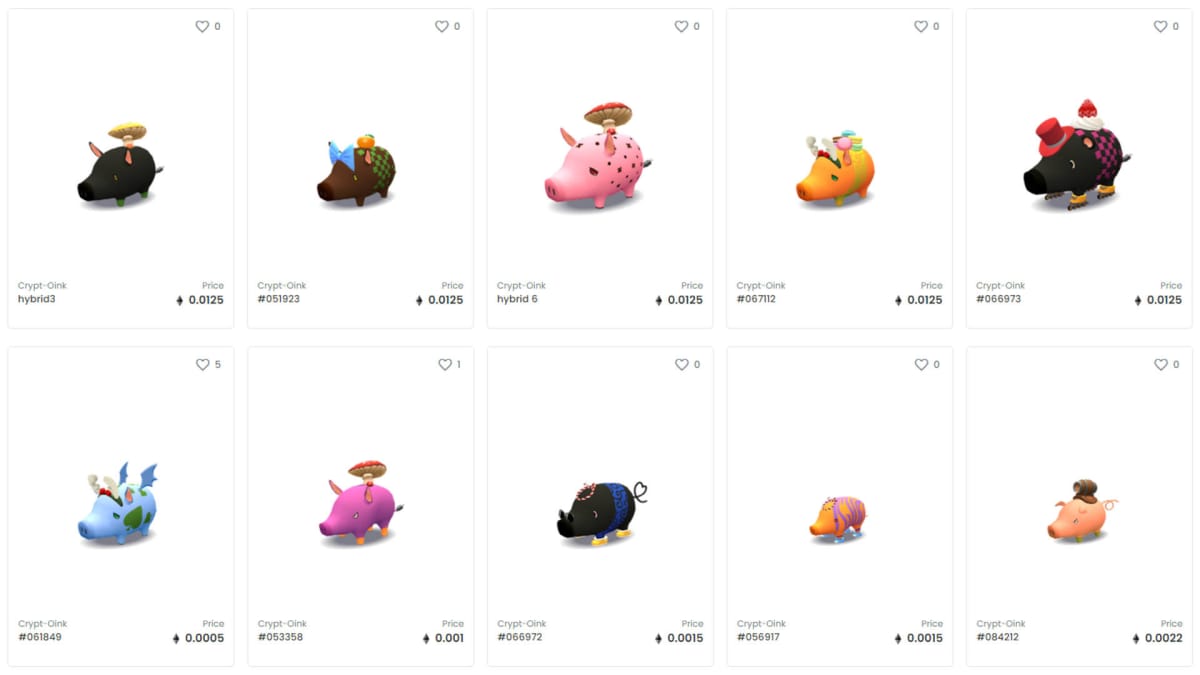
Tales From the Crypto
And now we come down to brass tacks: Tontachi is a game that uses cryptocurrency as the backbone of the game. Your adorable pet pigs are essentially non-fungible tokens (NFTs) on the Ethereum blockchain.
I know, I know. It feels like there are a dozen new crypto games or apps launching every week, and some of them seem to be a thinly veiled mining app for a coin that you've never heard of, but that's not what Tontachi is about as far as I can tell. Unlike some of the more questionable crypto games, Tontachi uses the well-established Ethereum blockchain as its foundation.
There are hundreds of games in the world that leverage blockchain technology. Some of these games are tied to a cryptocurrency (such as Tontachi and CryptoKitties), and others create a brand-new blockchain system. Wolff's AR pet simulation game is an attempt to expand a game originally made for a Japanese audience to the wider world — and the blockchain is an important part of that.
"[Using] a decentralized, public blockchain makes your company an international company, which is really nice."
As Wolff explained to me, security is one of the many concerns for this kind of game. Any multiplayer games featuring tradable items will eventually have to deal with a handful of players making illegitimate duplicates. A secure blockchain makes duping items impossible, and that's especially important since Tontachi's income depends on taking a small slice of the proverbial pie from player transactions.
There's more to utilizing the blockchain aside from security — players will have the opportunity to earn money. Your Tons are tied to cryptocurrency, and selling one of them on the open market can net you a profit. Wolff later confirmed to me that players could cash out any money they've earned while playing the game, so there's a potential for profit to be made by the more enthusiastic players in the community.
Crypto is, of course, only half of the equation. Tontachi uses augmented-reality technology for the pet simulation aspect and races. Wolff told me that AR isn't one of his stronger suits — and that's one of the reasons he hired Gregory Johnson, a young man nearly a decade younger than him.
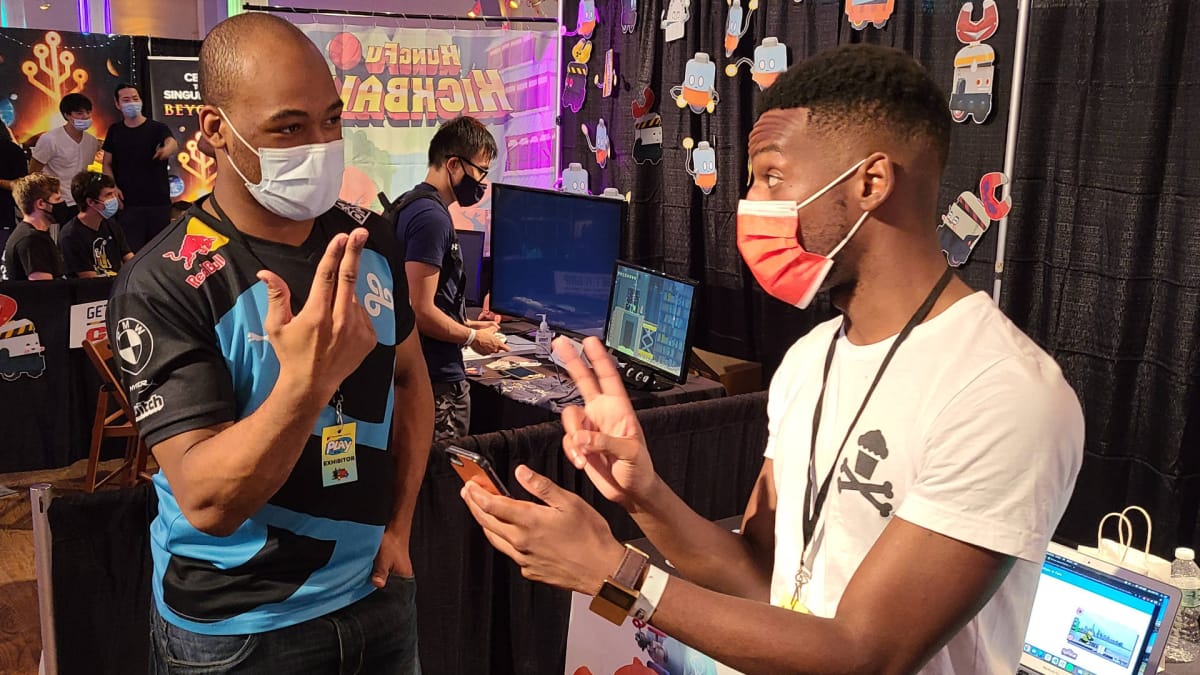
A New Reality
Wolff has a fair amount of expertise with game development, but he didn't want to fly solo when making Tontachi. That's one of the reasons he brought Johnson on board to build out the programming and augmented-reality aspects of the game.
Johnson was one of many students attending Lawrence Technological University who was working on a computer science degree; he was also part of a smaller group of computer science majors that had a specific focus on game development. Wolff managed to track him down and decided that Johnson was a good prospect for helping make Tontachi a reality, eventually hiring him as the Lead Unity Developer for Urban Electronic Games.
"School can only get you so far if you don't have the real experience to actually get there. One of the biggest things I've gotten from John [is an understanding of] how a game isn't so easily made and how a lot of people do it. [...] There's a lot of elements I wasn't expecting — especially from the business standpoint of games — that I've learned from him. He's kind of like to mentor to me." – Gregory Johnson
Johnson has subsequently done a lot of the heavy lifting behind the scenes, creating much of the backend and core features for Urban Electronic Games' upcoming virtual pet experience. He's also recently been involved with integrating the Niantic Lightship augmented-reality tech into Tontachi.
I got to see this technology firsthand while at Play NYC 2021, and it's certainly impressive. This isn't just a floating character on the screen; the game actually maps the world around you to make it appear as if your Ton is running around on a table or floor.
This augmented reality tech is expanded to the racing aspect of the game, too. The finished product would let multiple people place their Tons in the game world, allowing everyone to see one another's pets and watch a race happen in real time. It was impressive to see it in action, albeit a little shaky — after all, the game is still being worked on.
Tontachi is very much a work in progress, and so is the professional relationship between these two game developers. Wolff had nothing but praise for his colleague, noting that he was impressed with Johnson's skill set at such a young age. Johnson similarly expressed admiration for his colleague, although he added that the pair sometimes butt heads when challenges arise.
"We need to ensure that this multiplayer feature works properly as we're sending packets up to networks so we get it all working cohesively together." – Gregory Johnson, commenting on the challenges of developing a multiplayer game
These challenges are exacerbated by the reality of making a game like Tontachi. Blockchain and augmented reality are relatively young technologies, and trying to combine the two is a difficult endeavor. Urban Electronic Games is doing that on top of all of the other problems that crop up during game development. At one point, Wolff and Johnson noticed that the development version of the game wasn't correctly disconnecting inactive players. That's a problem that could create serious complications in a live-service game.
From what I've seen, Tontachi already has a solid foundation and presents some intriguing possibilities for entertainment (and maybe even earning a bit of cash). This is a project you'll want to keep an eye on whether you're a casual or hardcore mobile gamer. You can learn more about this upcoming mobile game over at Urban Electronic Games' website; expect Tontachi to launch for Android and iOS before the end of the year.
Disclosure: Amazon works with TechRaptor for affiliate partnership, and TechRaptor earns a small commission off purchases made from some links in this article.
Have a tip, or want to point out something we missed? Leave a Comment or e-mail us at tips@techraptor.net
